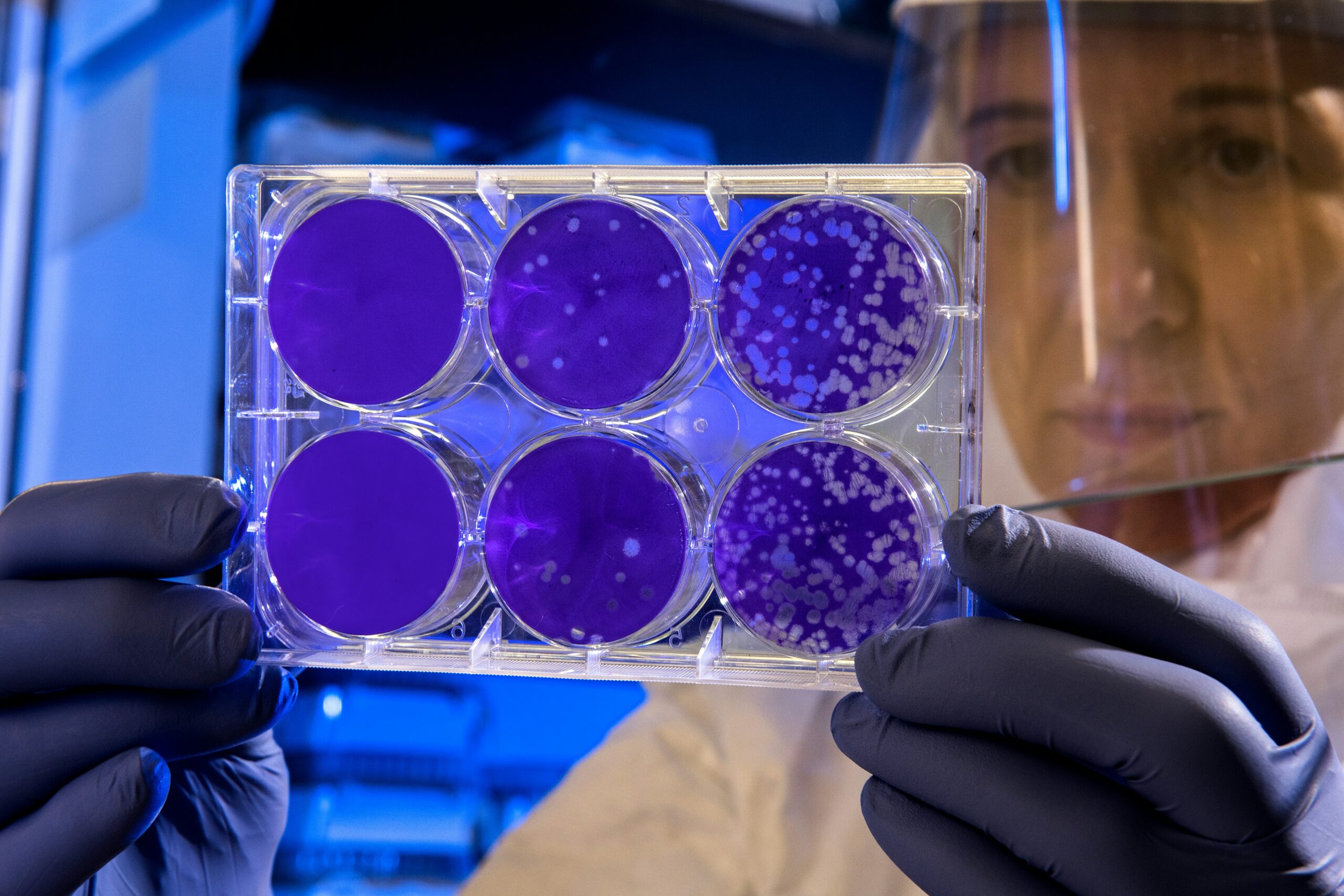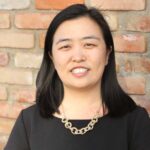
by Amy Kim, Ph.D, Physical Chemistry and Executive Director of EnCorps, Inc.
A Month-long, Women-in-STEM Celebration
March is always a celebratory month for me as a woman in STEM. There’s so much to appreciate about a time of year specifically dedicated to lifting up the incredible achievements of women who have left an indelible mark on our shared history.
When I think about the contributions of trailblazing women like Dr. Alexa Canady—our country’s first African American woman neurosurgeon—or aerospace engineer Diana Tujillo—who immigrated to the U.S. at 17 with only $300, and who went on to become a NASA flight director contributing to the Perseverance Mars rover mission—I am not only in awe of their brilliance but also of the trials they had to overcome to succeed in a field where their gender and racial identities are woefully underrepresented.
Their stories, and others I get to learn about during Women’s History Month, always inspire me to hark back to my own journey to become a scientist. Reflecting on that journey today reaffirms many of the values that compelled me to step into the Executive Directorship at EnCorps: a desire to break down barriers, foster greater inclusivity, and empower underrepresented students to pursue their passions and talents in STEM no matter their background or life circumstances.
My Own Journey to STEM
I was drawn to STEM from a young age because I wanted to try something a little different from my parents, who worked as professors teaching business and fashion design. I moved around with them a lot as a little girl, often back and forth between Korea and the U.S.
Looking back, I sometimes wonder if relocating so frequently injected an element of unpredictability into my schooling, making it uncertain I’d be picking up in exactly the same learning place I last left off. That might be part of the reason I’ve always loved math. To me, math always seemed very clean cut, straightforward. I knew if I worked hard enough at it, I could always get better, and mastering one mathematical concept was an important linkage to another no matter what classroom I happened to be in. That was not the same feeling I got when studying English language arts and similar subjects, which seemed far less concrete without the same clear, quantifiable steps that math afforded.
My love for math eventually blossomed into an even broader appreciation for the STEM disciplines, and in undergrad I realized how much I enjoyed the research process—being able to delve deeply into a subject to unravel all its mysteries. I ultimately decided to pursue a PhD in chemistry at the University of Chicago, where I focused on researching how insulin moves through a diabetic system. My choice to go into research was driven by a fundamental belief I still hold today: at the heart of scientific inquiry lies the chance to contribute meaningful solutions to address some of the world’s biggest, often life-altering dilemmas.
The Mentorship Gap
While I had a great experience at the University of Chicago, it was marked by a notable lack of female representation in the program. Among the 12 students admitted, only one other woman entered the cohort alongside me. Unfortunately, she departed after our first year, leaving me as the sole female graduate in our peer group.
Without another woman as a classmate, I sought out and was fortunate to find women faculty and mentors who warmly welcomed me, even though I wasn’t officially affiliated with their labs. Their open doors provided invaluable support during my six years there. Being able to see myself mirrored in them as mentors and career role models was pivotal in fostering my confidence, as was having a male professor, with daughters of his own, who stepped up in the ways he could to help me.
These mentors encouraged my ability to question without hesitation—qualities, vital for success in STEM, that require cultivation through time, practice, and encouragement. Having access to individuals with shared backgrounds and life experiences who occupied leadership roles in STEM and could set a helpful example served as a powerful catalyst for my development. It also gave me a deep understanding from firsthand experience about the importance of diverse representation in academia and the field.
A Woman We Should All Thank: How One Woman Scientist Saved Countless Children’s Lives
When I think of yet another reason diverse representation in STEM matters, Dr. Frances Oldham Kelsey immediately comes to mind. She is a scientist (and a fellow University of Chicago alumna!) I have long admired as an exemplar of why women, mothers, and people from diverse walks of life have something incredibly important to contribute to the field.
In the 1960s, a medication commonly used for insomnia, Thalidomide, was being prescribed to women around the world for morning sickness with the assumption there were no toxic side effects. However, Dr. Kelsey, just a month into her new role at the Food and Drug Administration, was adamant about wanting to see more clinical evidence that it was safe after she recalled a study she conducted on pregnant rabbits during her time at the University of Chicago. A woman scientist and a mother herself, she brought both of those identities to her work, putting a key stake in the ground by leveraging the regulatory system to safeguard other mothers in the U.S. from potential harm. Despite the pressure she received to approve the application for the drug’s use in the U.S., she asked more questions, challenged ambiguities, and would not bend to pressure. Not long after, reports from around the world began spreading that there was an unusual uptick in birth defects among children whose mothers used Thalidomide. Thanks to staunchly opposing the approval of the medication without seeing more evidence, Dr. Kelsey likely saved thousands of children from harm who are still alive today.1
At EnCorps, we encourage our STEM professionals to go into the field of education, so they can inspire the next generation of budding scientists and engineers, like Dr. Kelsey did for me. Her legacy serves as a testament to the wealth of perspectives and talents that can enrich scientific inquiry, highlighting the significance of inclusivity in driving safety, accuracy, innovation, and progress.
As we honor the legacy of women scientists like her—and countless other unsung STEM heroines in labs and classrooms around the country—I can’t help but look forward with anticipation, thinking about the innovative strides yet to be made and those that might be dangerously overlooked if women aren’t given an adequate number of seats at the STEM table. Let stories like hers embolden us to challenge the status quo, dismantle barriers, and create a more inclusive landscape where all individuals, regardless of gender or race, can contribute their fullest potential to the world of STEM. It will only keep our world safer, healthier, and thriving to a greater extent.
Act Now and Keep the Conversation Going
We are at a pivotal moment in time where the world needs more problem solvers, particularly from diverse backgrounds. Women—with our unique perspectives, often exceptional multi-tasking abilities, and diligent approaches—are well-suited to excel in STEM. In addition, it’s essential for all of us scientists and engineers, not just women and underrepresented people of color currently working in the field, to engage directly in our communities and mentor young women who aspire to become STEM professionals through classroom education, mentoring, or tutoring programs like those we offer here at EnCorps. It is incumbent upon all of us to actively mentor and provide these opportunities for growth.
I invite you to join us in doing so. You can begin by embracing this Women’s History Month as an opportunity to recognize the past, present, and future brilliance of women in STEM. To learn more about becoming a mentor or STEM teacher with EnCorps or to read about incredible women scientists, surgeons, astronauts, and engineers who are worthy of celebration this month and all year long, follow us now @EnCorpsSTEMTeachers.
 Connect with Amy on LinkedIn.
Connect with Amy on LinkedIn.
___________
Source:
1 Geraghty, K. (2001, July). Protecting the Public: Profile of Dr. Frances Oldham Kelsey. AMA Journal of Ethics. Retrieved from https://journalofethics.ama-assn.org/article/protecting-public-profile-dr-frances-oldham-kelsey/2001-07
